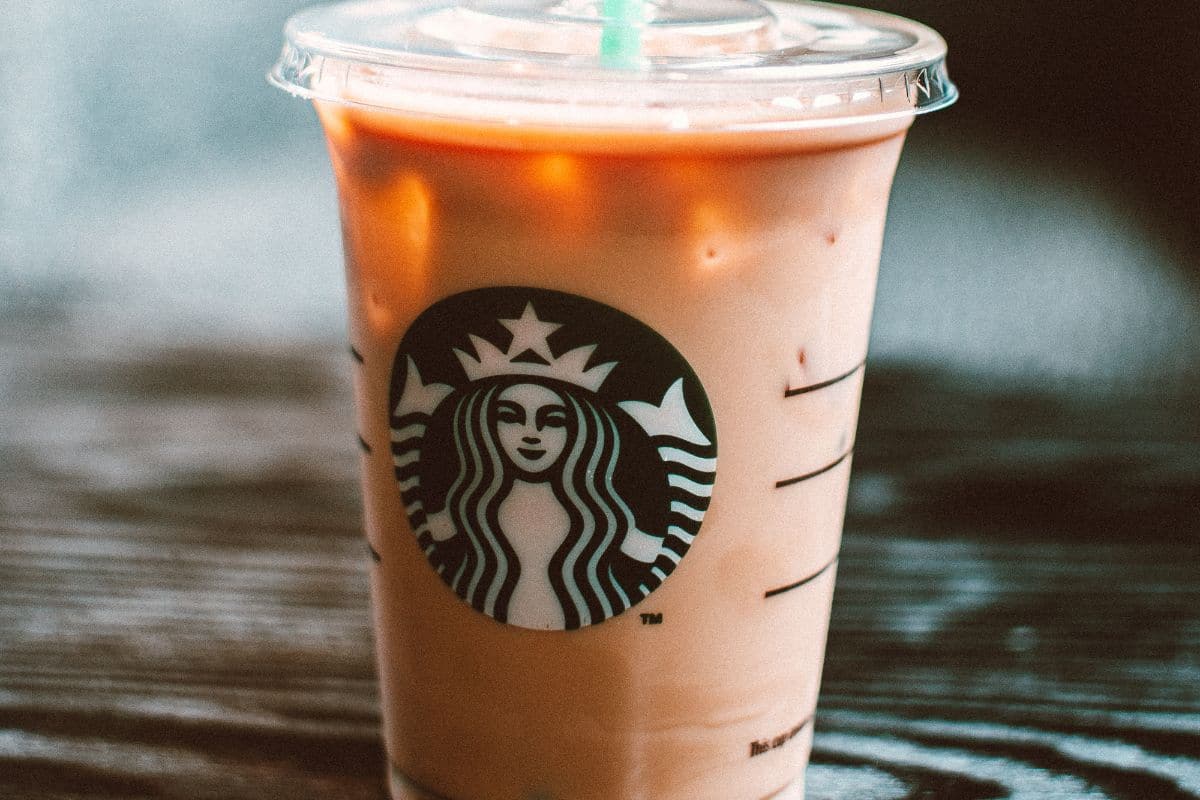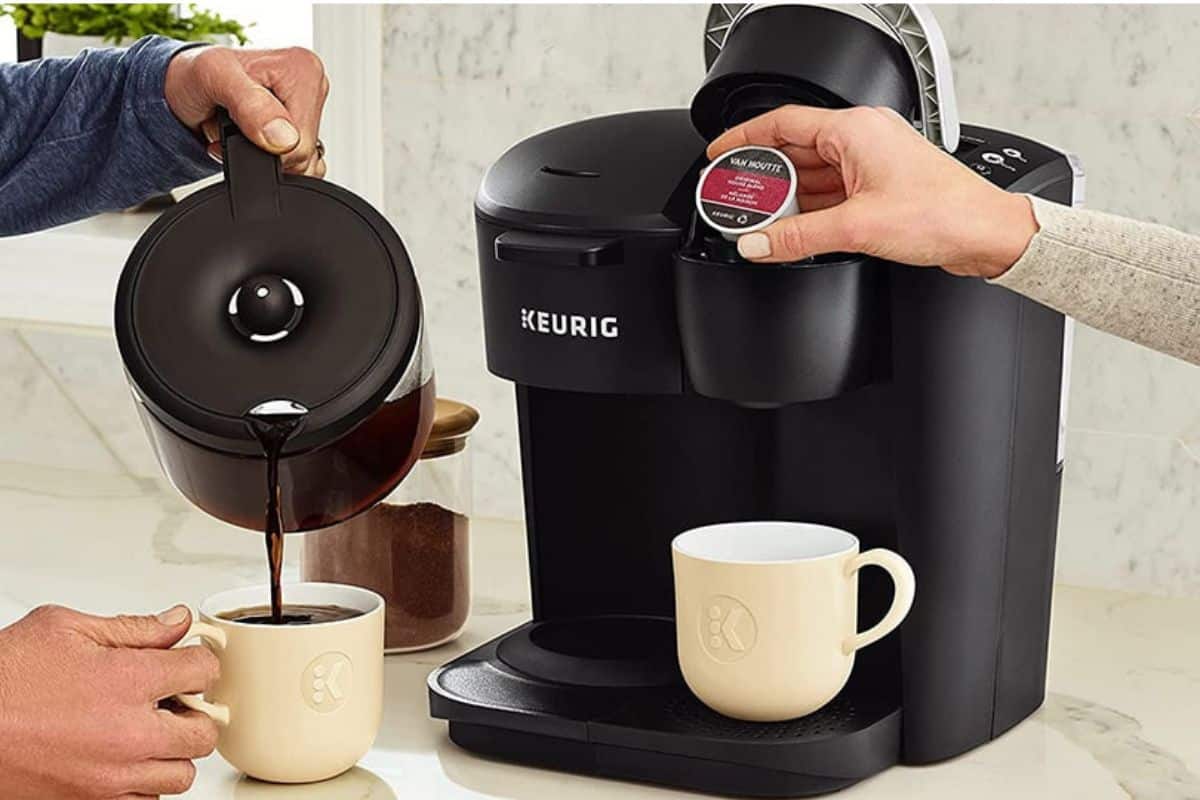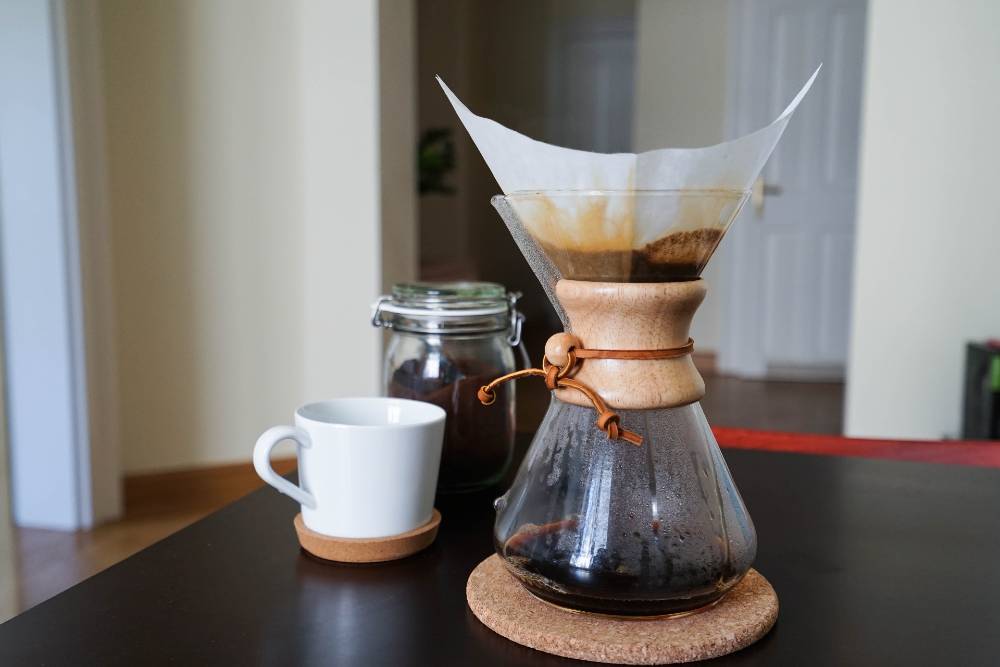Any budding barista will know that you need good quality coffee to get the very best out of your french press or to really make that latte stand out from the crowd. If you find that coffee shop java always tastes better than homemade then it’s time to look at your coffee choices.
If you already buy the freshest, best quality beans you can afford and you’ve practiced and perfected your brew skills but the coffee still isn’t blowing your socks off then it could well be that you’re not storing it correctly.
There are a few key steps when it comes to storing coffee beans and once you get these down you’ll never suffer a stale cup again. Make sure the container is airtight and the environment is cool and dark.
Of course, there’s more to it than that, so without any further delay, here’s everything you need to know about caring for those precious coffee beans.
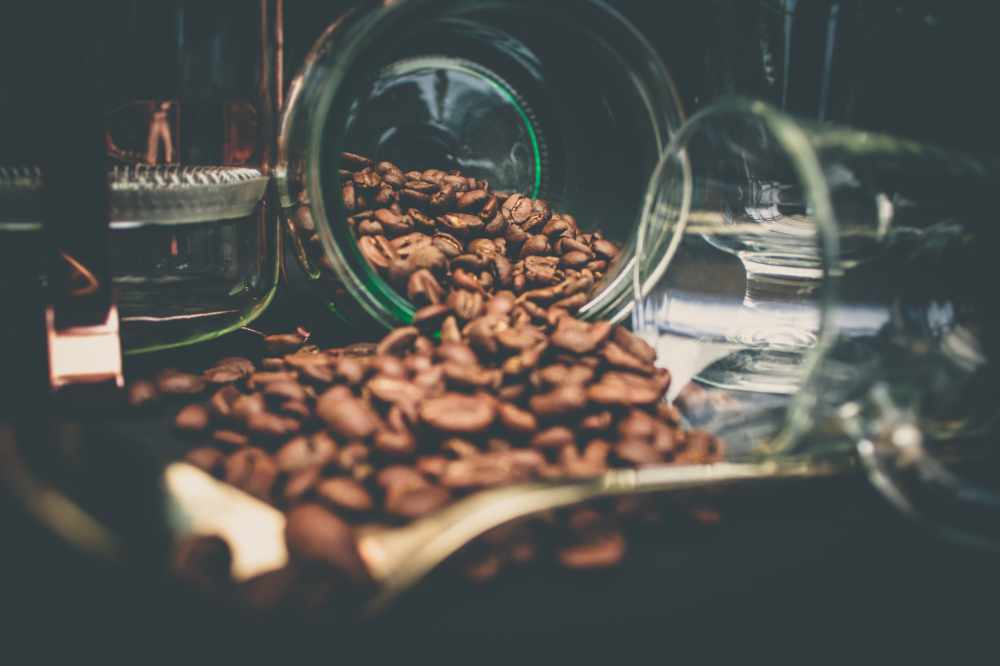
Why Buy Whole Beans
If you’re looking to get the richest flavor when you brew your morning java then the only choice is whole coffee beans. Ground coffee is easy to use but the grinding process, unfortunately, means that the coffee starts to release a lot of its aroma so less is available to end up in your cup of coffee.
The coffee bean is a little package of fats, sugars, and acids that all contribute to that delicious coffee taste. When you start grinding the beans into smaller particles you increase the surface area of the coffee. This means that a lot of flavors are lost as the coffee lets off carbon dioxide gas.
This is why pre-ground coffee lacks the full depth of flavor you get with whole bean coffee. Once you make the decision to choose whole beans, the next, most important step is storing them correctly.
What Happens If You Store The Beans Incorrectly
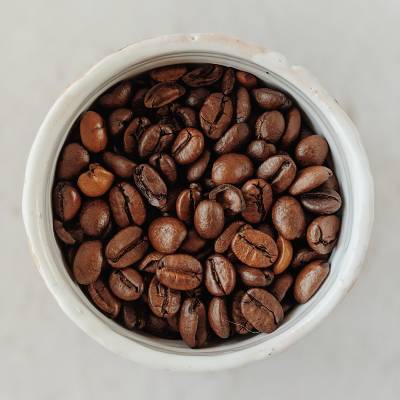
Fresh coffee doesn’t remain fresh for long if it’s not stored correctly. If you don’t pay attention to your coffee storage then you can end up with a stale, bland-tasting cup of joe. If the storage container is not adequate then, even worse, your coffee can end up moldy.
Coffee isn’t the cheapest and no one wants to end up wasting a bag of beans, so here’s a checklist you can follow to make sure you maximize the lifespan of your coffee.
Check List For Proper Storage
Follow these pointers to ensure your coffee remains the freshest bag of coffee possible.
Airtight/One Way Valve
The first, most important step, is to store those beans in an airtight container. Reducing oxygen exposure means the beans de-gas slower, so they hold on to more of those delicious flavors for longer. Any airtight canister will do everything from a mason jar to a piece of Tupperware works well.
The only exception to the airtight rule is the one-way valve system. You may have noticed that a lot of coffee packaging options have a plastic valve built-in. These help release some of the gasses that the coffee beans let off so that the packing doesn’t build up too much pressure. This is a useful feature to have but it must be a one-way system, so it doesn’t allow air into the bag.
Dark
Direct sunlight is a sure way to make those beans go bad quickly. If you want to maximize the shelf life of your coffee then make sure the beans are stored somewhere dark. A sealed tin is a good way to achieve this but if your coffee is in a glass jar or light-colored plastic container then you will want to make sure you store this in a dark cupboard.
As beautiful as a jar of coffee looks on the countertop, this is not the best way to keep them fresh. If your panty lets in a lot of light then consider wrapping the jar in a towel to minimize light exposure.
Humidity
Coffee should not be exposed to water until it’s time to brew your java. Excess dampness in the environment will lead coffee to go moldy fairly quickly. Don’t store your coffee beans near the cooker as steam from cooking food will cause dampness.
Watch out for fridges and freezers as these can let off moisture during the cooling process. Another place to avoid is next to or under the kitchen sink and near a washing machine or dryer as these are fairly damp locations. Also, avoid placing them near a window as water vapor will condense here.
Temperature
Coffee keeps well when stored at room temperature (around 15-25C or 59-77F). It’s important to keep the temperature fairly stable as large fluctuations are not good for the shelf life of the beans. Again, avoid cupboards and shelves near the cooker as the heat given off can damage your beans.
Keep them away from other kitchen appliances and even your coffee maker as these kinds of machines tend to heat up the space around them.
No Odors
Strong odors can end up imparting unpleasant flavors onto your coffee beans so if possible, are best avoided. Be mindful of what kinds of food you leave near the coffee beans as well as the cooking space in your kitchen. Don’t store the beans near cleaning chemicals or fragranced materials like air fresheners, washing powder, and scented candles.
How Long to Store Coffee Beans
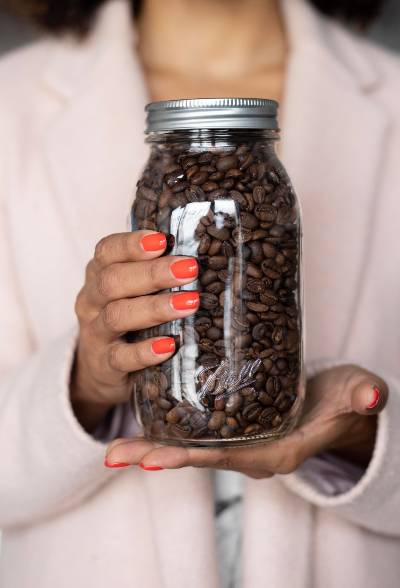
Roasted Coffee Beans
Coffee that’s fresh from your local coffee roaster is best enjoyed 7-10 days after the roast date. At this point in time, the flavors will have matured and the coffee has the best flavor profile to offer.
You can store roasted coffee for anywhere from 2-6 months in an airtight container in a cool, dry place. 2 months is roughly the benchmark where the coffee starts to lose some of its flavors and aromas and by 6 months you’ll notice a definite stale taste.
Coffee shouldn’t go ‘off’ in this time if stored correctly, but the flavor will be impacted.
Green Coffee Beans
Green coffee beans are coffee beans that have not been roasted yet. The beans are in a raw state and the lack of roasting means the sugars haven’t been broken down yet to release those all-important flavor notes we all know and love.
If you’re a fan of home-roasted coffee then you’ll be pleased to discover that you can store these beans for up to a year in the correct conditions. Vacuumed sealed green beans may last even longer than this!
Can I Store My Beans…
In The Fridge/Freezer?
It’s not recommended or necessary to store coffee beans in the fridge or freezer. The fridge is a humid environment that’s prone to odors so this will adversely affect your coffee beans. A frosty environment will cause freezer burn which permanently damages coffee beans.
In The Coffee Grinder?
Some coffee grinders and espresso machines with built-in grinders have airtight bean hoppers that can hold your beans and keep them fresh. Although this works well short-term, they are rarely airtight enough for long-term storage. I’d recommend just adding enough for your next batch of java, ie top it up the night before, but don’t leave bean in it for much longer.
Another downside with coffee grinders is that they tend to have clear, see-through covers so let light in that will affect your coffee beans over time.
Never store ground coffee in the grinder as this will go stale very quickly. Only grind the amount you wish to use each time and you’ll find you end up with the best coffee every day.
In The Original Packaging?
Most specialty coffees package their beans with care and attention. The packaging will be airtight, with a one-way valve to let the beans degas. As long as the packing is sealed and opaque in color then it’s fine to store the beans up to their use-by date or 6-12 months after the roast date.
Conclusion
So that’s it for coffee bean storage. Whether you like cold brew or espresso, all beans need the same love and care before you brew. Make sure you keep them all cozy in an airtight container, not too cold and not too hot. Keep them dry, keep it dark, and don’t let any odors in. If you follow these steps your coffee will thank you with the richest and most delicious flavors and aromas. Happy brewing!


